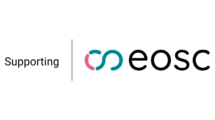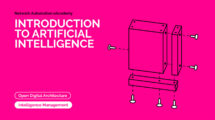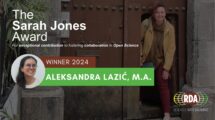In the latest edition of the Data Intelligence journal, published by the MIT Press, Jean-Claude Burgelman reflects on the untold story of how the European Open Science Cloud (EOSC) became a reality. Several stakeholders who were instrumental in developments reflect on his statement, including Edit Herczog.
In her contribution, Edit – who was previously a MEP in the European Parliament for Hungary – likens the EOSC journey to a Greek drama where it is the Chorus that moves the story forward. In any large initiative like EOSC the role of the community is central. Inspirational leaders and thinkers challenge the status quo, but it is the stakeholder community at large that act on these directions and make the envisioned change a reality.
Several key milestones are noted by Edit, including the EOSC Summit in October 2017, where 140 organisations signed the EOSC Declaration, the High Level Expert Groups on EOSC and FAIR convened by the European Commission, the major investments made in EOSC infrastructure projects, and the establishment of governance structures with the formation of the Executive and Governance Boards.
Transitions are always twofold: legislative change is difficult, but the associated cultural shift is a real challenge. It takes much longer to facilitate the alignment of diverging viewpoints. Fora to bring the community together like the Research Data Alliance are critical to give space to debate and work on solutions. Edit notes how this has helped to build international consensus on certain pieces of the puzzle such as defining FAIR maturity criteria, allowing these metrics to be implemented in regional initiatives such as EOSC.
Edit concludes on where we stand six years on from the start of the EOSC initiative: “We are not in the beginning of the end, but at the end of the beginning. It has been proved that parallel twin transition of professional expertise and societal acceptance is difficult but possible. As the structure of the Greek drama obliges: The main acts and actors interrupted and advanced by the Chorus.”
The article serves as a tribute to the Chorus – the many individuals and organisations that have engaged and committed time and resource to make EOSC what it is.
The latest issue of the Data Intelligence Journal is available here: https://www.mitpressjournals.org/toc/dint/current







